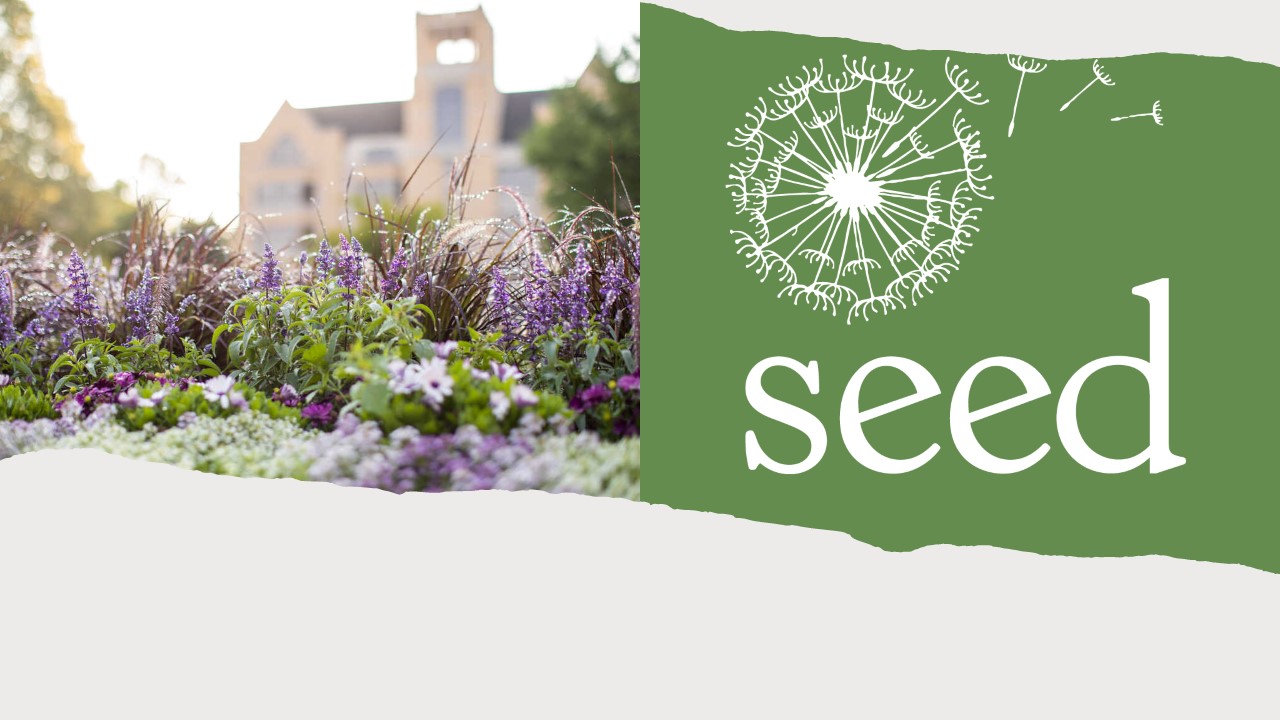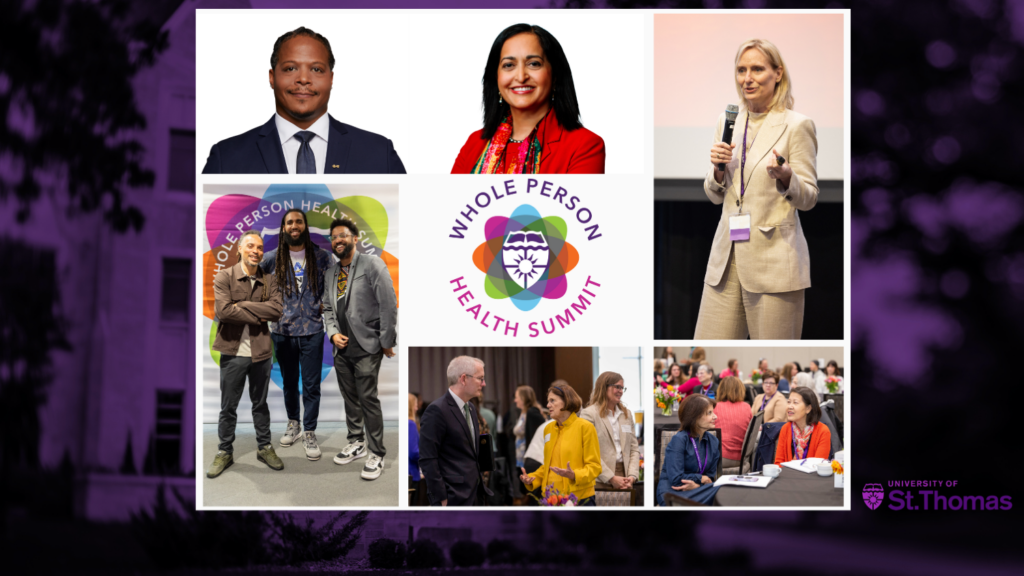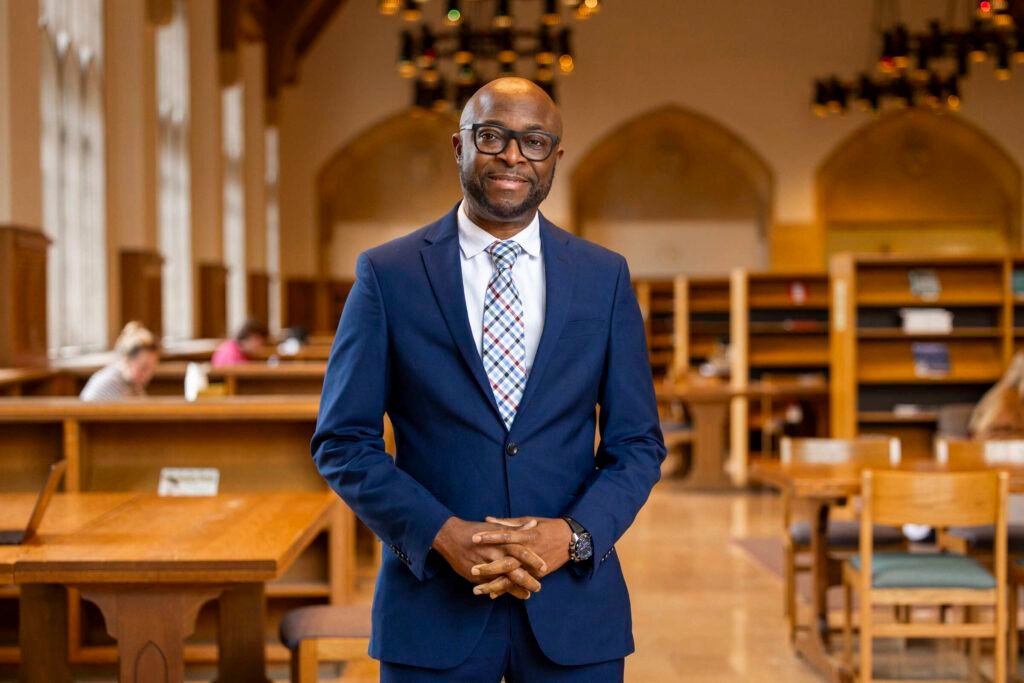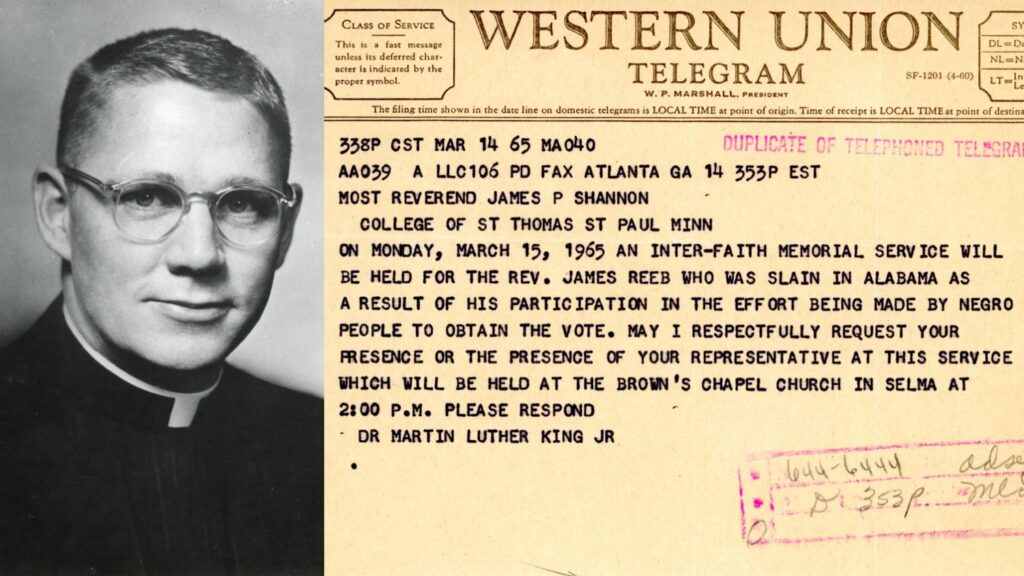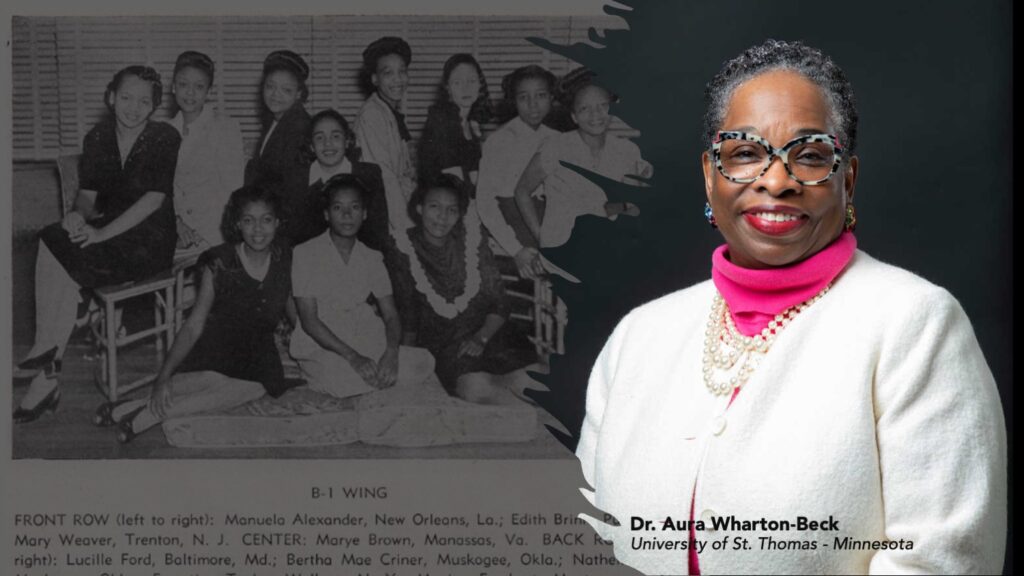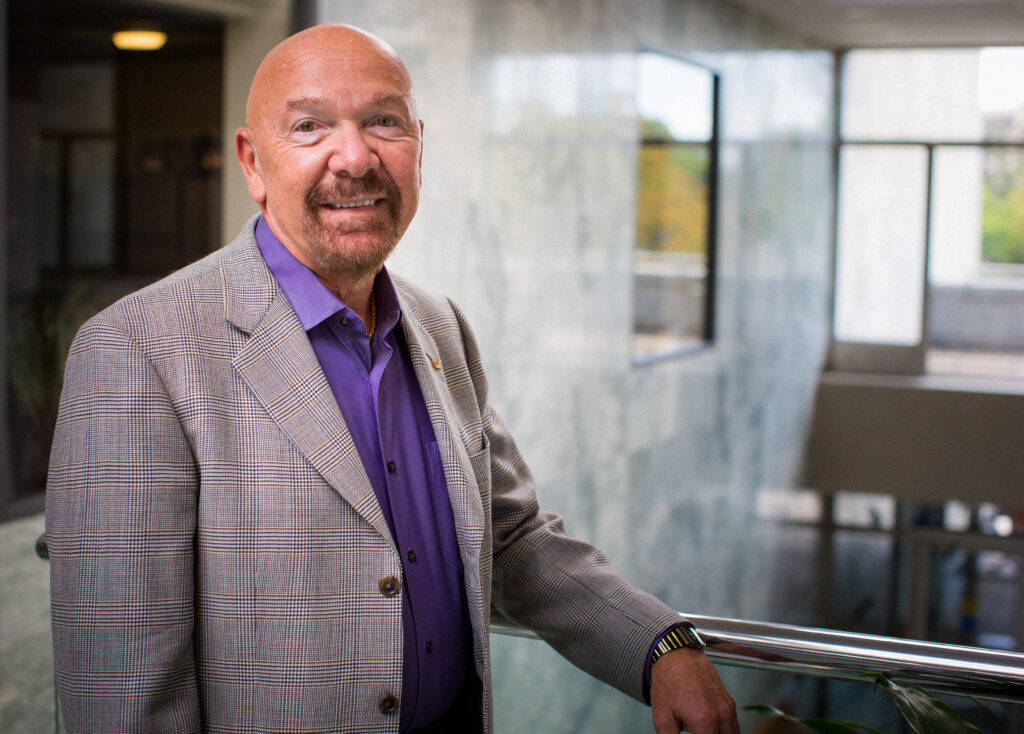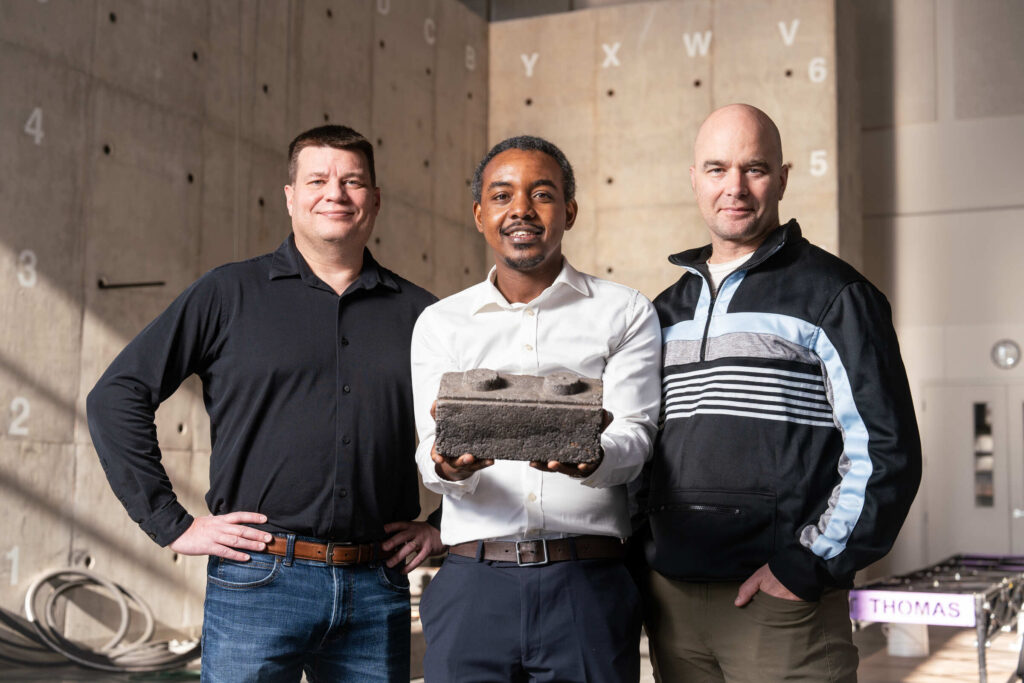If you walk across campus this week, you might run into a very focused group of educators.
On the evening of Aug. 1, these teachers, parents and community leaders found themselves immersed in several pieces of artwork. Each piece featured subjects from different cultures, and each had a lesson to tell. Viewers were asked to consider how each piece acted as a mirror of their own experiences, and then as a window into new experiences they knew little about.
The windows and mirrors activity is just one of the lessons taught during New Leaders Week, an intensive workshop from the National SEED Project (Seeking Educational Equity and Diversity). Its latest rendition has gathered 62 educators from communities across the U.S. for seven days of learning, hosted at the University of St. Thomas.
“This is really a project around people sharing stories and creating conversational communities that drive change,” Emmy Howe, co-director of the National SEED Project, said. “It’s really a project to deepen the way that people can talk to each other about similarities and differences.”
Founded in 1987, SEED partners with communities and schools across the country to develop leaders who guide their own peers to drive societal change. Participants in New Leaders Week will now take what they’ve learned and develop seminars and programs at their own institutions. The goal is to have a massive ripple effect, developing classrooms and workspaces that are led by educators with a commitment to equity and social justice.
“Everybody who comes through SEED ends up going back to their institution or community or church, wherever they came from, and leading a seminar that they’ve designed,” Howe said. “Our goal in SEED is to impact institutions so that every community member can be whole and well.”
The University of St. Thomas has felt that impact in a big way, with multiple faculty and staff attending previous workshops, and in turn, bringing the SEED methodology back to campus. The training has proved so popular, that the university has now established its own SEED program, with 160 faculty and staff taking part over the last four years.
“What we have found is that it is more than just a training on diversity, equity and inclusion,” Rachel Harris, co-director of the University of St. Thomas SEED program, said. “It helps individuals understand their own situation and where we sit in these systems.”
St. Thomas faculty and staff have embraced many of the SEED methods in their own classrooms, including a conversation tool called “serial testimony.”
“When we have conversations, we use a technique called serial testimony, which enforces an equitable use of time, to make sure that when we’re in conversation, everybody has an opportunity to be heard,” Harris said.
The St. Thomas SEED program will soon take applications for the 2022-23 academic year, with a variety of opportunities to learn and get involved. In-person and online cohorts meet monthly, while a summer cohort is also planned for 2023.
“It’s really a professional development opportunity for people who want to step into this work,” Harris said. “We look at what opportunities we have to make change within areas that we have agency, so within our own classrooms, within our own offices.”
For the leaders of the National SEED Project, all this work centers on a common wish for a more just future.
"It means we can imagine and work toward a world where every person in our communities, organizations, and institutions can be, learn, and grow," Jondou Chase Chen, co-director of the National SEED Project, said.
